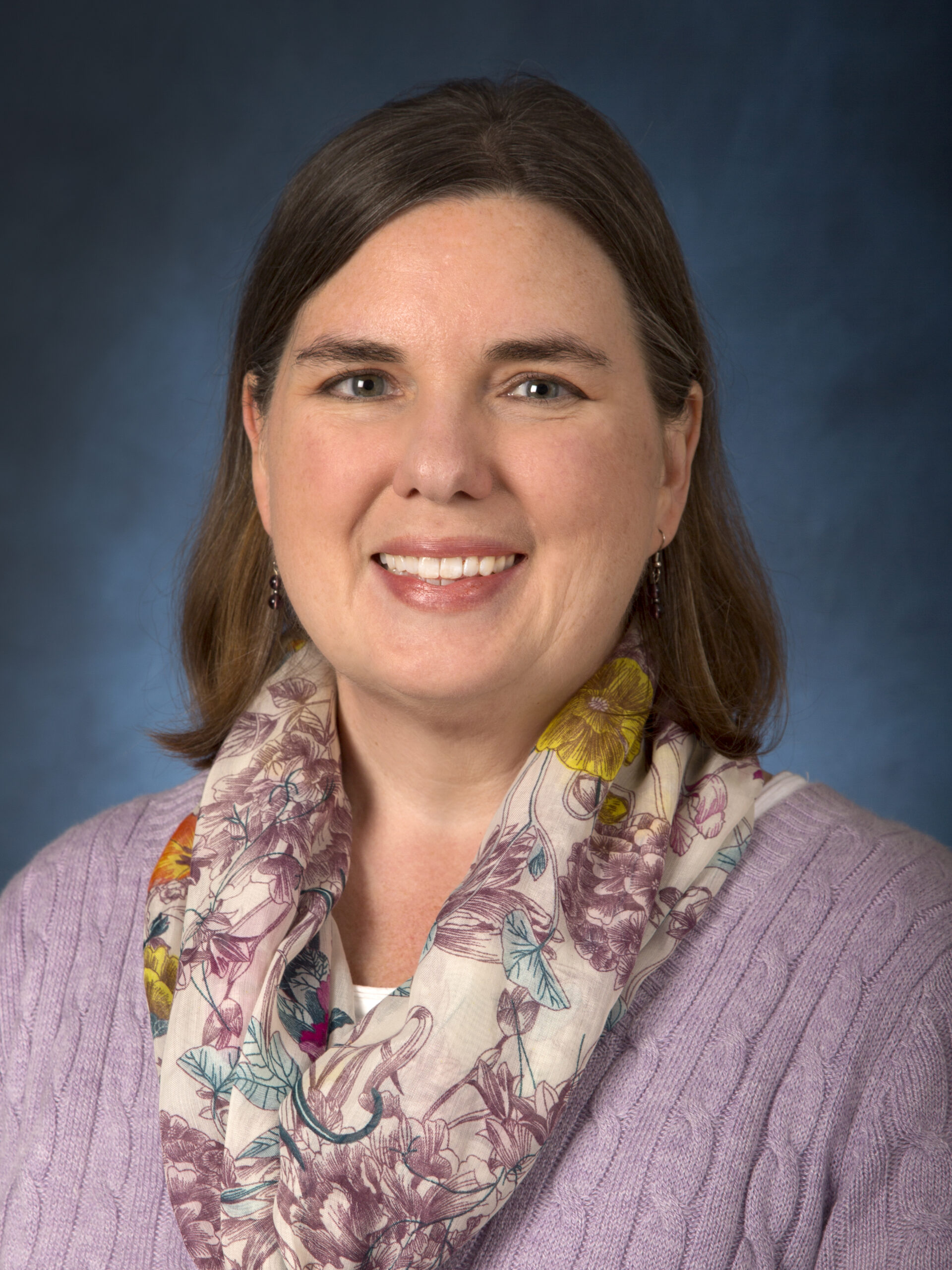Dr. Erika J. Pribantic Smith is an associate professor at the University of Texas at Arlington and serves as the coordinator for the journalism sequence within the Department of Communication. She is a journalism historian and an expert in print and online news, public relations, and non-profit administration.
Q: What inspired you to research Civil War soldier voting in California?
A: I was working on a chapter for a book on Civil War reporting in the West. The chapter was about partisanship in the West during the Civil War. A lot of Civil War history doesn’t really look at what was happening out West. As part of that research, I stumbled upon an interesting debate that was going on in the California newspapers over Civil War soldier voting, and I thought, “this deserves a paper all on it’s own.”
When I was researching it, there was a lot of debate going on in our modern time about absentee ballots. There was a lot of discussion about different means of voting without actually physically walking into a polling place because of COVID-19 and things. I instantly thought there was an interesting context and I really wanted to dig into it. I knew that it wasn’t just happening in California- it was happening in many States during the Civil War, but I first came across it by looking at the California newspapers. As I dug into it, I found what was going on in California so interesting. California was essentially behaving the same way as the nation as a whole. There was a Unionist sentiment in Northern California, but a Southern Confederate sentiment in Southern California. To me, that made it all the more interesting not only looking at partisanship, but also at clinging to Confederate or Union ideals. That seemed like an ideal place to view this debate through the lens of the partisan newspapers.
Q: Do you believe that the controversy surrounding absentee voting intensifies when it appears to favor a specific political party? How can this perception impact public trust in the electoral process?
A: That is a really interesting question. Partisanship is something that is of great interest to me. I’ve built most of my academic career on looking at partisanship and I think that it does drive most debate. People usually are clinging strongly to one side or the other, and certainly there are instances where not just with absentee voting, but with anything. Whether it seems to favor one party or the other, if one party seems to think it’s more beneficial than the other, then I certainly think debate will intensify.
At this moment, I think there is a lot of distrust in the electoral process. The past couple of elections have shown that and partisanship has been at the heart of that. One party simply believes that the electoral process is faulty, flawed and corrupt. I think that with all of those messages being put out there, I think they would certainly influence public confidence and trust in the electoral process. We saw that with the absentee voting during the Civil War where the Lincoln supporters, or the Republicans, felt that the absentee voting was certainly helping them. While the Copperheads, or the Democrats, kind of felt that it was not helping them and that all of these soldiers were obviously going to vote for Lincoln. Once the soldier votes came in, it completely changed the complexion of these local elections to the point where there were so many lawsuits happening.
Based on what people were saying and what I saw in the editorials and letters (of the day), there was definitely a lack of trust in the electoral process.
Q: In your article, you quote the following: the mail-in method “opened the door to a unique type of fraud in American electoral history and presented the federal government with a new opportunity to regulation elections.” Do you think that with today’s technology and socio-political climate it is easier for the government to regulate absentee voting? If that’s the case, which generation do you believe had a truer democracy?
A: That’s a great question! I think that anytime something new comes along, such as a new idea, new concept, a new way of doing things, or in our case a new technology, new challenges will arise and new opportunities for regulating. I don’t think it’s easier to regulate absentee voting now simply because there are so many different players involved. It’s not just the absentee voting and the ability for people to drop their votes in the mail or bring them to a central location and drop them somewhere. There are a lot of different means of voting, including recent conversations about being able to vote online in our own homes. Which would be fabulous and certainly more convenient, but then again, just like they said back in the nineteenth century, this would open the door for new kinds of fraud and a new need for regulation.
I feel that the more people you have in a society, the more difficult it is to have a voice. I would argue that the nineteenth century had a truer form of democracy simply because we had fewer people. In terms of representing voters, we had a true form of democracy. In terms of who is able to vote, now we have more people able to have a voice. So, it goes two different ways. With the voting laws that have happened since the Civil War, more people do have a voice. Now, whether the votes reflect that or not is a different question.
Q: Considering the announcement of the emancipation proclamation alongside legislation on absentee voting, how do you believe these historical milestones influenced the outcomes of elections during that period? Are there parallels to be drawn between the socio-political influences on elections then and now?
A: Certainly, we saw in California that the Emancipation Proclamation changed the landscape of the political parties. The two parties’ opinions on slavery obviously had a lot to do with what party they aligned with. When the ultra-Unionists in California decided that their entire philosophy was going to be based on the Emancipation Proclamation and supporting Lincoln, some people decided to shift to the Northern Democratic party. It definitely switched the landscape, and we saw that in the nation as a whole too, where we saw the Democratic party splitting up and the strengthening of the Republican Party around this Emancipation Proclamation period. When you have a party divided, that’s going to influence the elections because then you’ll have multiple choices for Democratic candidates, which will split up the Democratic vote. I think that was a big deal—just in terms of political philosophy and divisiveness among the Democratic Party in California and the nation as a whole.
Q: Are there parallels to be drawn between the socio-political influences on elections then versus now? How can we draw lessons from the past to address concerns about fraud in modern day voting?
A: There are a lot of things that have influenced the elections today, and perhaps we’re looking at something similar with today’s Republican Party. There isn’t a divide within the Republican Party like there were Northern Democrats and Southern Democrats happening during the Civil War. But I do think there are some ideological shifts happening where there are certain allegiances or alliances happening within the Republic Party where it might be splitting and causing some issues within the Republican Party, perhaps in a very similar way.
It was really interesting, especially in California, because they had a lot of opportunities to see the debate from afar and see what was happening in other places. All of the concerns about fraud that appeared in the newspapers in other states were valid. All this debate in the newspapers happened as the California legislature was figuring out what to do with their law. So, California made their voting laws airtight. If people followed the law, it was going to be very difficult for any sort of fraud to be perpetrated in the election.
I think that a lesson we can draw is we can look and critically think about every possible way that things could go wrong and think of ways that fraud and corruption could occur.
Q: Considering the role of newspapers in shaping legislation on absentee voting during the Civil War, how do you see contemporary media influencing electoral reforms today?
A: Newspapers don’t have the same influence now that they did back then. I like to think of McLuhan’s theory of what media is dominant in different areas of time impact their influence. So, when we had a print culture back in the nineteenth century, where everyone was dependent on print for everything, the newspapers contained information on where things were happening and where debates were happening. This was a time where everyone knew who the editor of the newspaper was. Especially with these partisan newspapers, the editors were often secretaries of their local parties going on or were running for office themselves. They were extremely influential, and people often wrote letters to the editors. So, in that way, with the debate playing out in the newspapers and the editors raising all of these insightful and valid points, legislators would read these newspapers and listen.
I don’t think the same thing is happening now because there is a lot of noise in the media landscape. Now, it’s not just the newspapers because we’ve got television, local newspapers, national newspapers, news broadcast on radio and so much more. In some cases, most of these media happen to be biased. And then we got all these independent factors happening such as independent news sources, online bloggers, and pundits. There’s just too much noise and I think it makes things more difficult, I would think, as a legislator to pick through the noise and find the insights that could perhaps influence their decisions on any sort of matter.
Q: What was the most interesting discovery you encountered during your research?
A: I really learned a lot about California politics and there are some really interesting characters. I thought it was really interesting that there were movements for California to secede and start clan-like organizations. They used offensive language and there was one quote that I debated on whether I should include it in my paper. It talked about how soldiers had no more right to vote than the Negro or Chinaman. Reading it makes you cringe, but at the same time, we can’t look at history through our lens, right? We have to look at it through the lens of the time, and that is obviously a sign of the culture and what was going on in that pro-slavery party. I was most surprised that these editors, the Copperhead editors especially, had a very strong pro-slavery, anti-Negro, and anti- United States movements.
It was also wild to see how the local people would push that sentiment out, so a lot of Copperhead editors were being driven out. As things went on in the Civil War and the Unionism grew stronger, there was a lot of violence occurring. Several Copperhead newspaper offices were destroyed, and it got to a point where they could only exist in certain places to express their opinions without being driven out. I think both the strength of their opinions and the movements that they were trying as Spearheads surprised me. There were only certain pockets where the Copperhead editors could voice their opinions in peace.

